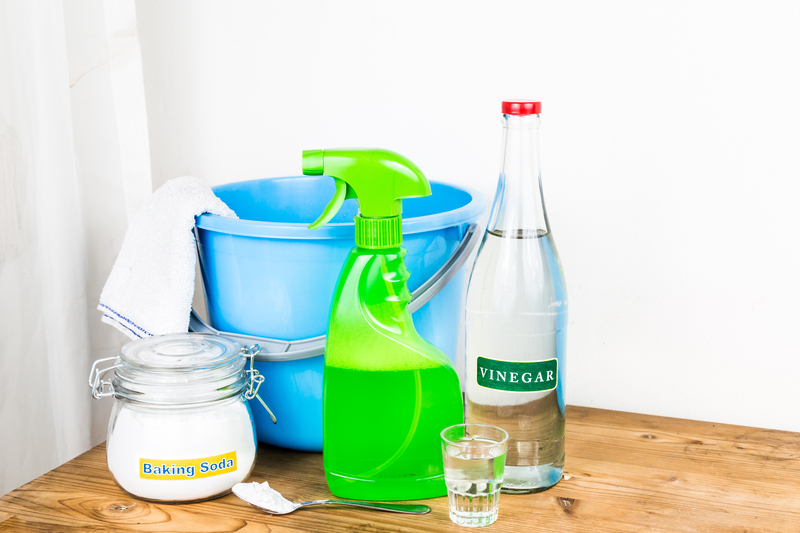Eradicate Pet Smells for a More Inviting Home
Posted on 07/06/2025
Eradicate Pet Smells for a More Inviting Home
Is your home plagued by stubborn pet odors? While sharing your space with furry friends brings immeasurable joy, it can also introduce a host of unwelcome smells. From doggie dander to cat urine, pet odors can linger long after your pets move from room to room. Fortunately, you don't have to compromise on comfort or cleanliness. With the right strategies, products, and routines, you can eradicate pet smells, ensuring your home is always welcoming to guests--both two-legged and four-legged alike.
Understanding the Sources of Pet Odors
Before you can eliminate unwanted smells, it’s essential to pinpoint where they come from. Here’s a breakdown of the most common contributors to persistent pet odors:
- Pet Urine and Feces: Accidents happen, especially with young or aging pets, often leaving behind powerful odors.
- Dander and Fur: Skin flakes and shed fur can accumulate and develop a musty scent over time.
- Saliva and Sweat: Some pets, especially dogs, produce noticeable body odors through their sweat and saliva.
- Litter Boxes and Bedding: Uncleaned litter boxes and bedding become breeding grounds for bacteria and odors.
Armed with an understanding of *where* pet smells originate, you can more effectively eliminate pet odors at the source, rather than simply masking them.

How to Permanently Remove Pet Odors from Your Home
1. Deep Clean Carpets and Rugs
Carpet fibers act like sponges, trapping hair, dander, and urine deep within. Regular vacuuming helps, but periodic deep cleaning is crucial.
- Steam cleaning: This method uses hot water extraction to eliminate stubborn stains and odors.
- Enzymatic cleaners: Choose an enzyme-based formula designed to break down urine and organic residue at a molecular level--eradicating odors for good.
- Baking soda: Sprinkle over carpets, let sit, and vacuum to neutralize surface smells.
2. Treat Hard Floors and Baseboards
Even sealed hardwood or tile floors can absorb smells from repeated accidents. To remove pet urine odors from hard surfaces:
- Wipe promptly: Always clean accidents right away to prevent lingering odors.
- Use a vinegar solution: Mix equal parts water and vinegar to cut through tough smells.
- Disinfect regularly: A mild bleach solution (for non-porous surfaces) can help kill odor-causing bacteria.
3. Wash Pet Bedding and Soft Furnishings
Unwashed pet beds, blankets, and pillows quickly harbor odors. To keep these fresh:
- Launder weekly with hot water and a pet-safe detergent.
- Add a cup of white vinegar during the rinse cycle to deodorize.
- Dry thoroughly--damp materials can develop a mildew smell.
4. Clean the Air: Purify and Circulate
The air itself can absorb and circulate pet odors, especially in poorly ventilated spaces. Here's how to fix it:
- Open windows: Natural airflow helps dissipate smells.
- Use HEPA air purifiers: These remove dander, fur, and odor particles from the air.
- Neutralize odors: Avoid chemical sprays; instead, use *activated charcoal* bags or bowls of baking soda to absorb stubborn smells.
How to Prevent Pet Smells from Returning
Eradicating pet smells is just the first step. A clean and inviting home free from pet odor also requires these preventative measures:
Regular Grooming and Bathing
- Brush pets often: Reduces shedding and dander accumulation.
- Bathe as needed: Use pet-friendly shampoos to keep coats fresh without stripping natural oils.
- Wipe paws: After walks, clean your pet’s feet to prevent dirt (and smells) inside.
Maintain Litter Boxes and Outdoor Areas
- **Scoop litter daily:** Prevents odors from building up in the area.
- **Replace litter:** Change it completely and sanitize the box weekly.
- Fresh air for outdoor areas: Hose down patios, kennels, and artificial turf to prevent lingering scents.
Choose the Right Cleaning Products
Avoid products with harsh chemicals that may harm pets or simply mask odors. Instead, select cleaners specifically designed to remove pet odors at the source, such as:
- Enzymatic sprays: Best for organic stains and odors.
- Baking soda: A natural, effective deodorizer for a variety of surfaces.
- White vinegar: Cuts through grease, grime, and smell without leaving residues.
Pet Smell Removal in Special Situations
How to Remove Cat Urine Odors
Cat urine is notorious for its pungent, ammonia-like scent. Standard cleaning may not be enough, so try the following:
- Blot excess urine: Immediately soak up as much as possible using paper towels or an old cloth.
- Apply an enzymatic cleaner: This is crucial--never use ammonia-based cleaners, as the smell can attract repeated marking.
- Rinse and repeat: Cat urine may require several applications to completely eradicate the smell.
Tip: If an area is especially saturated, you might need to replace carpet padding or subflooring to completely eliminate pet odors.
Managing Dog Smells
Dog odors can come from glands, drool, or simply their love of rolling in smelly things. Control and eradicate these smells by:
- Grooming regularly: As mentioned, prevent odor buildup before it starts.
- Wash toys and accessories: Fabric toys, collars, and leashes can absorb odors and should be cleaned often.
- Check ears and skin: Health issues can also contribute to persistent smells. Consult your vet if you notice unusual scents.
DIY Solutions to Eradicate Pet Odors
Prefer an all-natural approach? Try these home remedies for pet odor removal:
- DIY carpet freshener: Mix one cup of baking soda with a few drops of pet-safe essential oil, sprinkle, let sit for 20 minutes, then vacuum.
- White vinegar spray: Mix one part vinegar to three parts water in a spray bottle for a chemical-free odor neutralizer.
- Lemon water: Wipe hard surfaces with diluted lemon juice to leave a fresh, clean scent.
When to Call in Professional Help
If your own efforts have failed to eliminate pet odors, there may be deeply embedded issues. Consider professional cleaning for:
- Old or severe urine stains that penetrate subfloors or walls.
- Persistent odors in air ducts or HVAC systems.
- Large-scale needs, such as before moving or after pet-related damages.
Many professional cleaning services specialize in pet odor removal and can use industrial-strength products and equipment to restore your home's freshness.

Frequently Asked Questions About Pet Smell Removal
What is the best way to remove pet urine odor from carpets?
The most effective way is to use an enzyme-based cleaner designed for pet urine. Soak the area, let the solution break down the odor molecules, then blot dry and repeat as needed. For older stains, consider steam cleaning or professional help.
How can I make my home not smell like pets?
Consistency is key--groom pets regularly, wash bedding, vacuum daily, clean floors, and use air purifiers. Always address accidents promptly, and keep windows open when possible.
Is it safe to use essential oils for pet odor removal?
Some essential oils can be toxic to pets, especially cats. Always research or consult your vet before using essential oils, and opt for pet-safe options like lavender or chamomile in very small quantities.
Will airing out my home eliminate pet smells?
Fresh air reduces odors but doesn't eradicate pet odors at the source. Pair ventilation with routine cleaning for lasting results.
Conclusion: Enjoy an Inviting, Fresh-Smelling Home with Pets
Pet owners need not choose between company and cleanliness. By implementing effective cleaning protocols, using proven odor-removal products, and maintaining both pet and household hygiene, it's possible to eradicate pet smells and enjoy a *more inviting home*. Start with the tips above, create and stick to a solid cleaning schedule, and your home will remain a welcoming haven for everyone--pets and people alike!
Remember: Persistence pays off. Don't let stubborn smells take over your home. With these steps, you'll enjoy a fresh, pet-friendly environment all year long.





